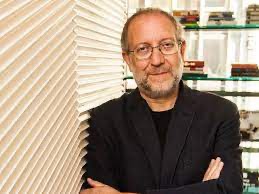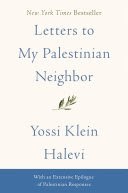The Tragedy of the Israeli People
We Levantines are forever lost in our stories. Stories that ruin our evenings and scold our mornings, stories that puncture the hours with pain and tears, that tear at the heart and arrest emotion. Stories that plead with the imagination to locate exits and coax the future into a rewrite.
And yet in the midst of such stories, even the darkest among them, we smile and laugh, talk and banter, fall in and out of love, kiss and curse. We go to work and build things, we succeed and fail and try again. We go quietly about our day. We even conjure from nothing an entirely different storybook made of fictions and fairytales to lull ourselves to sleep.
Throughout, what we are hard in search of is the light.
Israel-Palestine now defines life itself. And Gaza, God love it, won’t leave us whatever the conversation or the chore. We fume and writhe and prepare for the day after in morbid fear of what the rubble hides and what the dust above ground has so far obscured. Palestine today is where it has always been and where it rightly belongs: at the center of our thoughts and nightmares and dreams. It sounds sentimental, I know, but I share a truth long known to most of us here, including those who loathe the very word Palestine, and they do exist.
This is us. Not all Levantines, to be sure. Not the entire house, I am certain, but the biggest room in it, the ground floor as well, and the basement too, I have no doubt.
So long as the Palestinians bleed, we bleed. It’s as simple and as complicated as that.
Since Hamas’s October 7 attack, I have often wondered in what stories might my enemy be lost. I say enemy because they are over there on the other side, not the physical borders but the divides of the heart and mind that find us worlds apart. This is not a new endeavor. It’s been a habit of mine for the longest time. How else to understand?
So I went looking again for the enemy after October 7, a game-changing marker in the fraught history of Israel-Palestine. I went looking for the one whose lived Israeli experience speaks for many; the one whose Zionism is firm and whose quandary best reflects his country’s. In other words, I didn’t go looking for the likes of Gideon Levy or Amira Hass or Omer Bartov, because there are no quarrels between us, only different shades of opinions on the common grounds we share.
I found my enemy in Yossi Klein Halevi, courtesy of Ezra Klein, who hosted the Israeli author on his podcast last week. Klein chose well. If the Palestinian perspective was best represented by Amjad Iraqi, whose segment I highlighted in my last post, Halevi couldn’t have done better for the Zionist one.

This best-selling author segues comfortably between his vulnerabilities and beliefs and is sensitive to Israel’s trajectories under successively more extremist governments, but he has an abiding love for Israel that trumps every uncertainty. For him a Jewish Israel is a moral imperative and an existential must. I would hazard that many of his countrymen would agree with Halevi that he is a proud Zionist: proud of Israel’s miraculous beginnings, proud of its subsequent remarkable achievements, proud of its ability to come together under duress.
But as I listened to the antagonisms between what he understands and acknowledges and what he trusts and believes, I sensed the tragedy of this man–of the Israeli people.
There is no solution for Israel through perpetual war with the Palestinians, Halevi knows. No solution for Israel in the occupation of the West Bank and siege of Gaza either. He knows this because he served as a member of the Israeli Defense Forces (IDF) in both.


Early in the episode, he says:
I came out of that experience learning two things. The first is that the rule over another people is untenable, in the long term, for a country that wants to be both a democracy and maintain its Jewish majority…
The second experience was a direct encounter with the depth, not only of Palestinian rage, and in many cases, hatred, but with the negation of any legitimacy to a Jewish state in any borders.
And there they are, the two tortured experiences that gnaw at Halevi’s Zionism. On the face of it, there really shouldn’t be any tension between them. If occupation is indefensible and elicits hatred, then ending it is the only salvation for both people. But a closer look offers a glimpse into why they present such a terrible dilemma for Halevi.
Embedded within these personal experiences are countless stories, implied and mentioned. The most obvious one is, of course, the unsustainability of the subjugation of the Palestinians and the rage and hatred it keeps breeding in them. The most urgent is Halevi’s attachment to an ethno-nationalist state deeply rooted in the 20th century that is necessarily Jewish and democratic. But ironically, what makes it so urgent are the unstated tinderboxes Israel’s own success has left over the entire territory it controls between the Mediterranean Sea and the Jordan River, foremost among them a Jewish Israeli people trending towards a minority. The anxious insistence, therefore, on judging every demand for Palestinian rights, every act of resistance, and every quest for peace on the Palestinians’ recognition of a state that is permanently and exclusively Jewish. Simply put, a resolution of the historical struggle predicated on eternal Palestinian sacrifice.
The asymmetries and exclusions in these stories are palpable. The inherent racism and inescapable violence they imply is equally transparent. But they have their explanations in Halevi’s Zionism. The first is easy to grasp: for a historically pogromed people who faced extinction as recently as 80 years ago, there is security and safety solely in a fortress-like, dominant Jewish state. The uniqueness of the harrowing experience excuses the exceptionalism of the chauvinistic model. It’s a very traumatized view of one’s place in the world and, sadly, a very ungenerous one towards those trapped in its space.
The second explanation reveals an extraordinarily disturbed Zionist disposition without which, I suspect, Halevi wouldn’t be able to live with himself: the violence and bloodshed that soaks the struggle over Palestine is all the Palestinians’ fault.
In this way, the Palestinian’s negation of the legitimacy of a Jewish state confirms to Halevi something fundamentally terrifying about them, but Israel’s own negation of the Palestinians through decades of dispossession and occupation and oppression says nothing to him about Zionism and Israel. Why? Because the Palestinians are at fault for inviting this upon themselves.
In bringing “psychological understanding to the negotiating table,” Jacqueline Rose in her recent essay, “You Made Me Do it,” chiseled away at the very troubled psychology that insulates Zionism from the consequences of its blatantly grotesque treatment of the Palestinians:
…the casual racism–love and hatred distributed so callously between the two people–is one thing; but it’s the shedding of all responsibility for Israeli state violence by lodging it inside the hearts and minds of the enemy (‘You made me do it”) that I find most chilling.
Chilling for the Palestinians, because according to this Zionist rationale, resistance is forever a sin and, therefore, everything that Israel does is forever justifiable. In her 1973 autobiography, Golda Meir gave full expression to this conviction:
When peace comes we will perhaps in time be able to forgive the Arabs for killing our sons, but it will be harder for us to forgive them for having forced us to kill their sons. Peace will come when the Arabs will love their children more than they hate us.
That is to say, had the Palestinians, from the start, surrendered and acquiesced in their fate, packed up and left, we wouldn’t have had to ethnic cleanse and kill them.
Chilling for Halevi, in 2023, because by this same reasoning there is no way out for him and Israel. The call for equality in the land between the river and the sea which Israel controls is a form of political terrorism. Pursuit of legal recourse through international courts is legal terrorism. Pursuit of redress in international fora like the UN is diplomatic terrorism. Even a Palestinian state on the tiny fragmented expanse that Halevi thinks is more than a fair shake is a mortal threat.
At one point, he distills it for Klein: “On the one hand, I believe that a Palestinian state is an existential need for Israel. And I also believe it’s an existential threat, especially given what we’ve experienced on Oct. 7.”
What’s left, one has to ask?
The costs for the Palestinian people of this “chilling” logic have been unbearable over the course of 75 years. But they have become increasingly so for Halevi and the Israeli people, and hence the trap in which he and they find themselves. For Zionism’s ethos to thrive, no matter the suffering inflicted on the Palestinians, history would have had to stand still.
Instead, Zionism and Israel appear, in 2023, as disoriented anachronisms, outraged by a Palestinian people that refuses to surrender to them, furious at a world that questions them, livid with a growing number of Jews who shame them, and embarrassingly dependent on the West to cover for them as they sink ever deeper into their mad predicament.
Tragic was the first word I muttered to myself when the podcast came to an end.
****
On Another Note
Much controversy since October 7 about a slogan and a term that make Israel and its supporters apoplectic: “Palestine Free From The River to the Sea” and “Decolonialization.”
As I always say, context is king, and Peter Beinart does a wonderful job unpacking the rich history of these two terms.
I am with him that a more accurate slogan that better reflects the aspirations of those who sing it would be “Palestinians Free from the River to the Sea.” I have no doubt in my mind that Israel will find this catchphrase no less objectionable, but the idea is not to please Israel but to describe well the meaning of many of those chanting it.
Here’s an excerpt from Beinart’s substack piece that shows the implicit racism and absurdity in banning the two said phrases on Twitter.
To say [Palestine free from the river to the sea] implies genocide, it seems to me is just fundamentally kind of unfair. It’s especially unfair because of the profound double standard, right? Because there isn’t a Palestine from the river to the sea, so we don’t know how it would treat Jews. But there is an Israel from the river to the sea and we know how it treats Palestinians, right? Like that’s not theoretical. That exists, right? And it’s considered to be an apartheid state by its own leading human rights organizations, right—B’Tselem, Yesh Din—because most of the Palestinians under Israeli control are not even citizens and don’t even have the right to vote in the country that controls their lives.
And what’s even more absurd is that Israeli officials, in justifying this one apartheid state that exists, they use the phrase ‘from the river to the sea.’ The Likud charter says, ‘between the river and the sea, there will be only Jewish sovereignty,’ right? But that’s not banned on Twitter. Basically, to say, we’re gonna control all this territory. Millions of Palestinians are not gonna have the most basic human rights.
